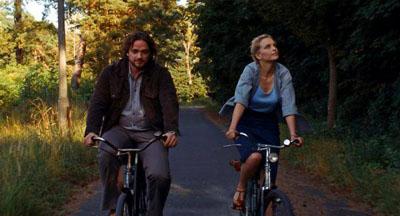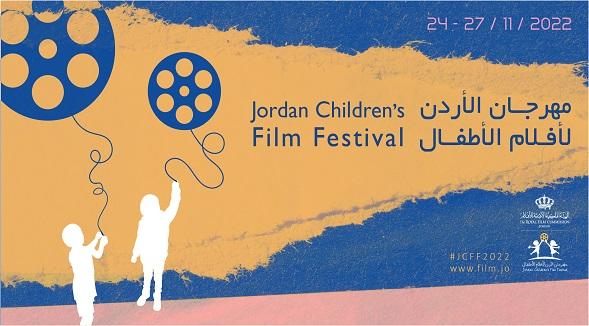You are here
Film week brings ‘intellectually demanding’ features from Germany to Jordan
By Muath Freij - Nov 16,2015 - Last updated at Nov 16,2015

A still from the film 'Barbara', which will be screened on Wednesday as part of the Goethe Film Week (Photo courtesy of Goethe Institut)
AMMAN — Five German films are currently being screened in Amman as part of Goethe Film Week with the aim of exposing the Jordanian audience to the German film industry.
Günther Hasenkamp, director of Goethe Institut in Amman, which organised the event at the Rainbow Theatre, said the cultural centre chose films that are not only about Germany, but also have a universal meaning.
“We tried simply to select good movies. We don’t want to send a specific message. We are not preachers and there is nothing we want to preach,” he told The Jordan Times at the event’s opening ceremony on Sunday, when “The Cut” by internationally acclaimed director Fatih Akin was screened.
The film is set in Mardin, a small village in Turkey, in the year 1915. It tells the story of an Armenian blacksmith who searches across the world for his twin daughters after the deportation of Armenians from the Ottoman Empire.
“When you talk to Jordanians about German movies or German cinema, the first [person] they will name is Fatih [Akin]. I was a bit surprised that he is so well known in Jordan, and in a way we felt that we should screen one of his movies,” Hasenkamp said.
Ahmet Servet Golbol, a lecturer at the German-Jordanian University who discussed the film with the audience after the screening, said German cinema regained its popularity over the last 20 years.
“But before that time we had a really very popular movement which has very famous directors because they tried to show realism in Germany, but then it completely vanished,” Golbol told The Jordan Times, in reference to the New German Cinema movement, which was popular between the 1960s and the 1980s and produced internationally acclaimed filmmakers such as Wim Wenders and Werner Herzog.
“It really took two decades until the German film business rose again,” he said.
Golbol noted that after the fall of the Berlin Wall in 1989, there was a new international interest in Germany and its art.
“I can say that [German] films now have a good reputation internationally,” he added, suggesting that the film week’s selections present an alternative to “popcorn cinema”.
The content of the films is “a little bit more intellectually demanding”, the lecturer added.
“Oh Boy” by director Jan Ole Gerster was on Monday’s agenda, while the 2004 documentary “Rhythm is it!” will be screened on Tuesday.
It depicts a project led by Berlin Philharmonic conductor Simon Rattle and British choreographer Royston Maldoom, which sought to popularise classical music and dance by giving 250 socially disadvantaged young people from Berlin state schools the chance to perform Igor Stravinsky’s ballet “The Rite of Spring”.
The film “Barbara”, set in communist East Germany in 1981, will be shown on Wednesday.
Directed by Christian Petzold, the film follows the titular character, a doctor in a provincial hospital, as she tries to flee to the West amid persecution by state security. “Home from Home” (Die Andere Heimat) will close the film week on Thursday.
The four-hour, black-and-white film from director Edgar Reitz centres on Schabbach, a German village, in the year 1840, when its young people faced the decision of whether to stay or emigrate in search of a better life.
All screenings, held at the Rainbow Theatre in Jabal Amman, start at 7pm and entry is free.
Related Articles
AMMAN — The films of acclaimed German auteur Wim Wenders teach viewers how to take their time in contemplating images and focusing on what t
AMMAN — The Jordanian documentary "17" presented a “source of motivation” to practise and follow football, not only for audiences of the fil
AMMAN — The first edition of the Jordan Children’s Film Festival (JCFF), organised by the Royal Film Commission (RFC), will kick off on Thur


















